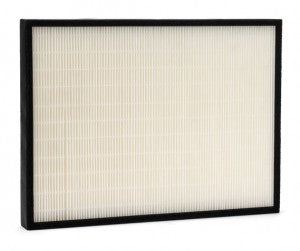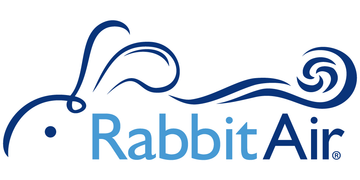 When you want to get dust, mold, and other particulates out of your air, there is nothing better than an air purifier with a true HEPA filter. HEPA filters – short for High Efficiency Particulate Air – use special fibers, commonly made of paper or glass, to trap airborne particles. Rabbit Air’s BioGS HEPA filters go a step further by using an advanced fiber material, which reduce allergens over time to increase efficiency. While these filters are important tools for keeping the air in our homes clean and fresh, did you know that HEPA filters were originally designed with much more dangerous particles in mind? Developed in the 1940s, HEPA filters were an important part of the Manhattan project. Radioactive particulates used in the project could become airborne, and scientists needed a filter that could clean the air while keeping them safe. It wasn’t until a decade later that HEPA filters began to be used commercially in homes, hospitals, and other areas where having clean air was essential.
When you want to get dust, mold, and other particulates out of your air, there is nothing better than an air purifier with a true HEPA filter. HEPA filters – short for High Efficiency Particulate Air – use special fibers, commonly made of paper or glass, to trap airborne particles. Rabbit Air’s BioGS HEPA filters go a step further by using an advanced fiber material, which reduce allergens over time to increase efficiency. While these filters are important tools for keeping the air in our homes clean and fresh, did you know that HEPA filters were originally designed with much more dangerous particles in mind? Developed in the 1940s, HEPA filters were an important part of the Manhattan project. Radioactive particulates used in the project could become airborne, and scientists needed a filter that could clean the air while keeping them safe. It wasn’t until a decade later that HEPA filters began to be used commercially in homes, hospitals, and other areas where having clean air was essential.
Though it is common to find HEPA filters in households across the world in everyday appliances, like air purifiers and vacuum cleaners, HEPA filters are also used in all sorts of surprising places! Airlines use HEPA technology to filter the air flowing through the passenger cabins in order to reduce the spread of airborne germs, and hospitals even have special HEPA face masks that are used to help keep doctors and patients safe. Animals can benefit from having their air filtered too, and HEPA technology is sometimes used in zoos and aquariums to keep our furry and feathered friends breathing better. Amazingly, HEPA filters have even gone into space, where they are used to purify the air on the International Space Station!




